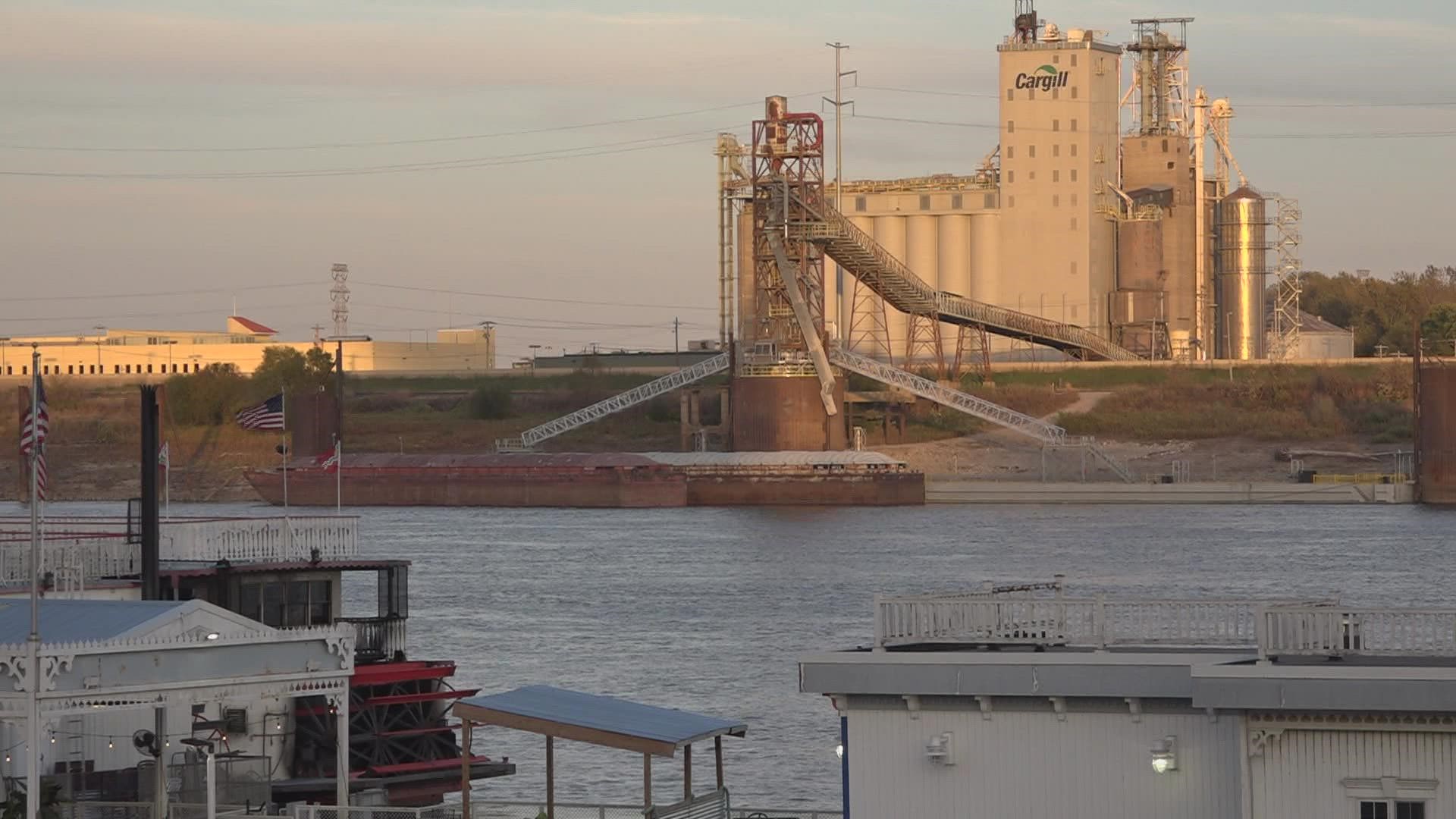ST. LOUIS — The Mississippi River has reached a new low the United States Coast Guard says we haven’t seen in years.
While the Mississippi River is normally lower this time of year, the severe lack of rain to keep the river going is now causing economic problems.
The United States Coast Guard said right now in the St. Louis area the Mississippi River level has dropped to -1.88, a level that hasn't been recorded since 2004.
“In about a week, we're projected to go to -3, which will be about the 25th lowest that it's ever been. The last time in this area that we've seen significantly low water was approximately the 2012-2013 season,” USCG Commander Daniel Every said.
From historic flooding this summer to historic drought this fall, biology professor and the primary investigator at the Saint Louis University Water Institute Jason Knouft said this is an indicator of how drastically the climate is changing.
“We're going to see more floods like that and we're going to see more droughts like we're seeing now but yeah, that was something and it really just speaks to the importance of good water management,” Knouft said.
Every said between the upper Mississippi River and the Illinois River we see $42 to $60 billion in economic activity, particularly crops that are loaded on barges and sent down the river to New Orleans where they're shipped worldwide.
But hundreds of barges are having trouble getting through.
“When the water is really wide, when the river level is up, they're able to pass each other safely. But in reduced water levels as we have right now, they have to be extra cautious when they are navigating and they meet one another,” Every said.
That directly impacts your pocketbook.
“Food prices are going up; energy prices might be impacted, and it takes more to clean our water. And so those are the implications for people, I think, on a day-to-day basis,” Knouft said. “And so how do we deal with that? People talk about voting all the time. But really, that is where we need to be thinking, and we need to be thinking about the conservation of our freshwater resources.”
The Water Institute said right now every drop counts and some things you can do at home include shorter showers and making sure faucets aren't left running for long periods of time.

